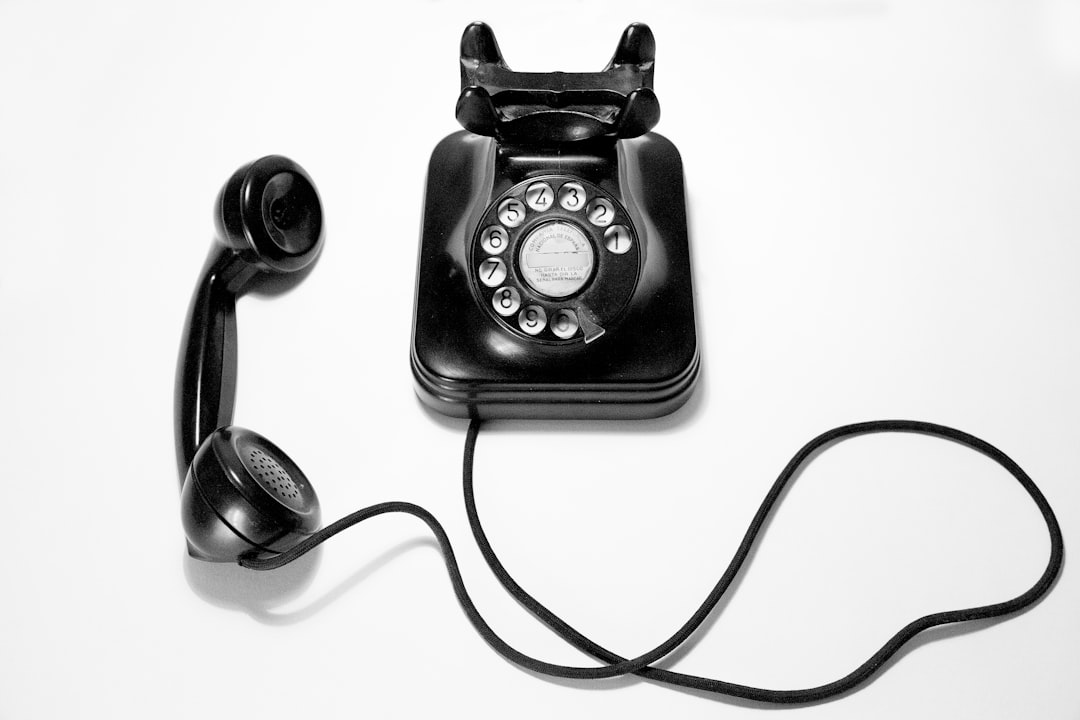Voice assistants like Siri, Alexa, and Google Assistant have transformed how we interact with technology, streamlining tasks from setting reminders to managing "Do Not Call" lists. In South Dakota, where strict Do Not Call laws protect residents from unwanted telemarketing, these assistants now enable easy registration or removal of phone numbers from lists via voice commands. This digital shift presents challenges for businesses, as voice assistants can inadvertently trigger Do Not Call lists, leading to misdials and false positives. As a result, qualified Do Not Call lawyers in South Dakota are crucial for guiding businesses on navigating these complex waters and ensuring compliance while maintaining responsible marketing practices.
The ubiquitous presence of voice assistants like Siri, Alexa, and Google Assistant has reshaped consumer interactions, from simple queries to complex tasks. This article explores the rise of these digital helpers and their profound impact on South Dakota’s Do Not Call laws. With an increasing number of households adopting smart speakers, understanding how voice assistants transform communication is crucial for Do not call lawyers in South Dakota and attorneys. We examine traditional rules, analyze compliance challenges, and predict future implications for legal professionals navigating this evolving landscape, ensuring do not call law firms in South Dakota stay ahead.
The Evolution of Voice Assistants: From Siri to Alexa and Beyond
The evolution of voice assistants has transformed how we interact with technology, marking a significant shift in our daily routines. Initially introduced by Siri, Apple’s virtual assistant, the concept quickly gained traction and paved the way for more sophisticated players like Amazon’s Alexa. These early pioneers set the stage for a new era of hands-free, voice-activated devices that could understand and respond to natural language commands.
Over time, companies like Google with its Assistant and Microsoft with Cortana joined the race, each bringing unique features and capabilities. Today, voice assistants are ubiquitous, found in smartphones, smart speakers, and even integrated into everyday household objects. With advancements in artificial intelligence, these devices can now handle complex tasks, provide personalized recommendations, and offer a level of convenience that was once unimaginable. For South Dakota residents seeking legal advice regarding Do Not Call laws, having access to voice assistants means quicker access to information, making it easier for them to connect with do not call lawyer South Dakota, do not call attorney South Dakota, or consult with do not call law firms South Dakota.
How Voice Assistants Are Transforming Consumer Communication
Voice assistants like Siri, Alexa, and Google Assistant are revolutionizing consumer communication in numerous ways. These intelligent devices allow users to interact with technology through natural language, making tasks easier and faster. From setting reminders and alarms to controlling smart home devices, voice assistants have become an integral part of daily life for many South Dakotans.
In the context of Do Not Call laws, these technologies are introducing new challenges and opportunities. Consumers can now register their phone numbers on “Do Not Contact” lists more conveniently than ever before. A simple voice command to a smart speaker or virtual assistant can add or remove a number from various lists, making it easier for residents of South Dakota to manage unwanted calls from lawyers, attorneys, and law firms. This shift towards digital registration and management of Do Not Call preferences could significantly impact how legal professionals reach out to potential clients in the future.
Navigating Do Not Call Laws in South Dakota: Traditional Rules
In South Dakota, adhering to Do Not Call laws is paramount for businesses and individuals alike. Traditional rules dictate that telephone solicitations are prohibited during certain hours, such as before 8 a.m. or after 9 p.m., unless the caller has obtained prior consent from the recipient. These regulations are designed to safeguard residents from unwanted and intrusive marketing calls, providing them with peace of mind and control over their personal communication.
For businesses operating within South Dakota, compliance means ensuring that all outbound calls, including those made by automated systems or voice assistants, adhere to these guidelines. Engaging a qualified Do Not Call lawyer in South Dakota can be invaluable for navigating this intricate legal landscape. Such legal experts can guide businesses on obtaining proper consent, managing call lists, and implementing practices that respect individual privacy rights, thereby avoiding potential penalties and fostering positive customer relationships.
The Impact of Voice Assistants on Do Not Call Compliance
The rise of voice assistants like Siri, Alexa, and Google Assistant has significantly impacted compliance with Do Not Call laws, particularly in South Dakota. With millions of people now relying on these devices for daily tasks, businesses have found new avenues to reach consumers through automated phone calls and text messages. However, this convenience comes with challenges; many voice assistant users are unaware that their interactions with smart speakers and virtual assistants can trigger Do Not Call regulations. A simple voice command to place an order or set a reminder could result in a violation if the user is on a Do Not Call list.
Do Not Call lawyers in South Dakota are increasingly seeing cases where businesses have failed to obtain explicit consent, relying instead on implicit permissions from voice assistant interactions. This has led to legal complications and financial penalties for non-compliance. As voice technology advances, so does the need for clarity in consumer consent mechanisms, especially regarding Do Not Call laws. Attorney advice is crucial for businesses to navigate these waters effectively, ensuring they respect privacy while promoting responsible marketing practices in South Dakota.
Future Implications for Do Not Call Attorneys in South Dakota
As voice assistants become increasingly integrated into daily life, their impact on consumer privacy and communication laws, including do-not-call regulations, cannot be overlooked. In South Dakota, do-not-call lawyers and attorneys play a vital role in protecting residents from unwanted telemarketing calls. However, with the rise of smart home devices and virtual assistants like Alexa or Google Home, there’s a potential shift in how these laws are enforced and navigated.
Do-not-call attorney firms in South Dakota may need to adapt their strategies to address new challenges. Voice assistants can inadvertently trigger do-not-call lists due to their interactive nature, leading to misdials or false positives. This development could prompt lawyers specializing in do-not-call laws to offer enhanced guidance on managing customer interactions through smart speakers and similar technologies. As a result, South Dakota residents could benefit from more efficient do-not-call protection, while law firms may explore innovative ways to stay at the forefront of this evolving legal landscape, ensuring compliance and client satisfaction.






